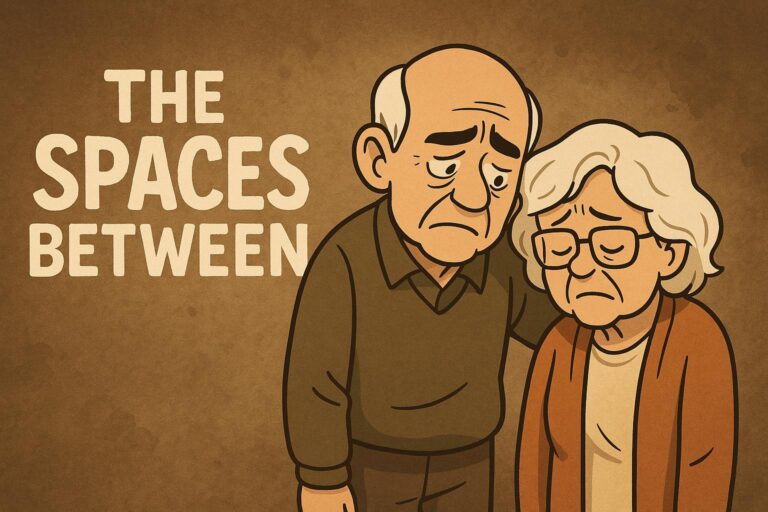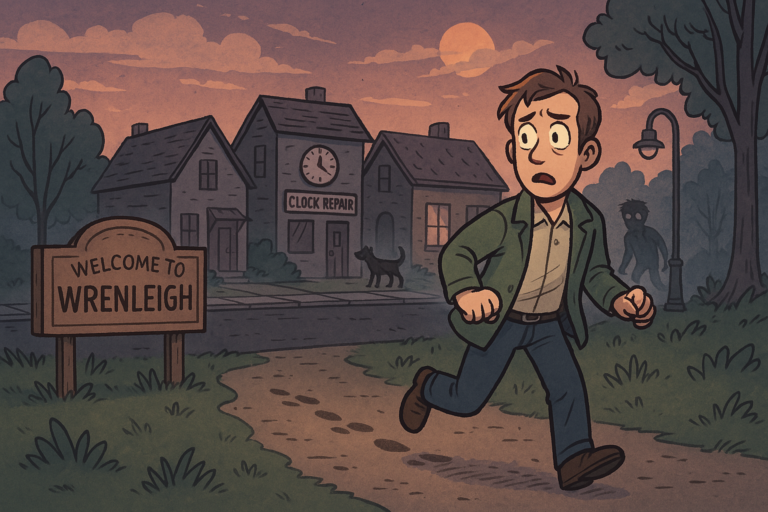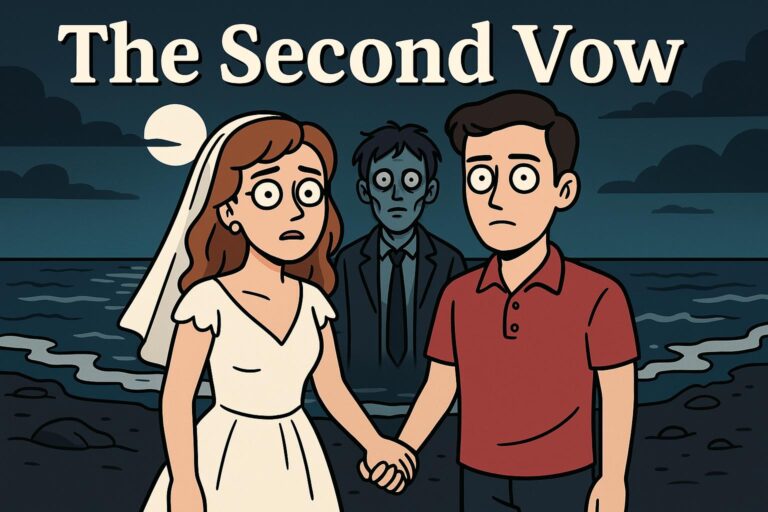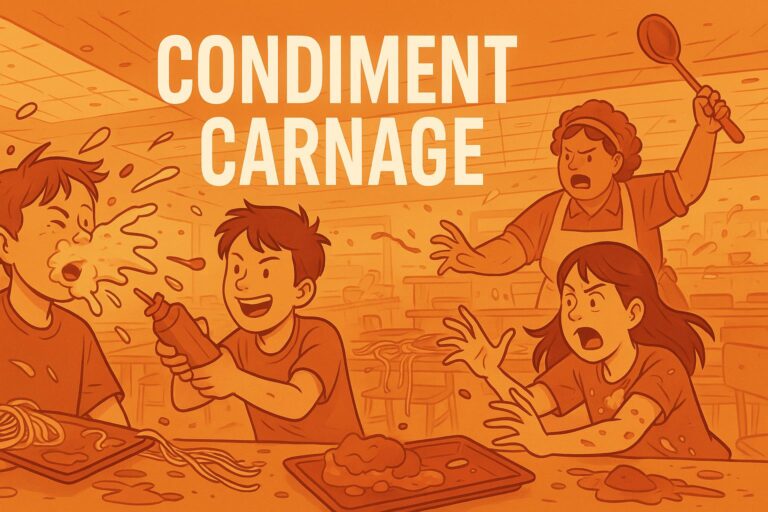The Weight Of My Name
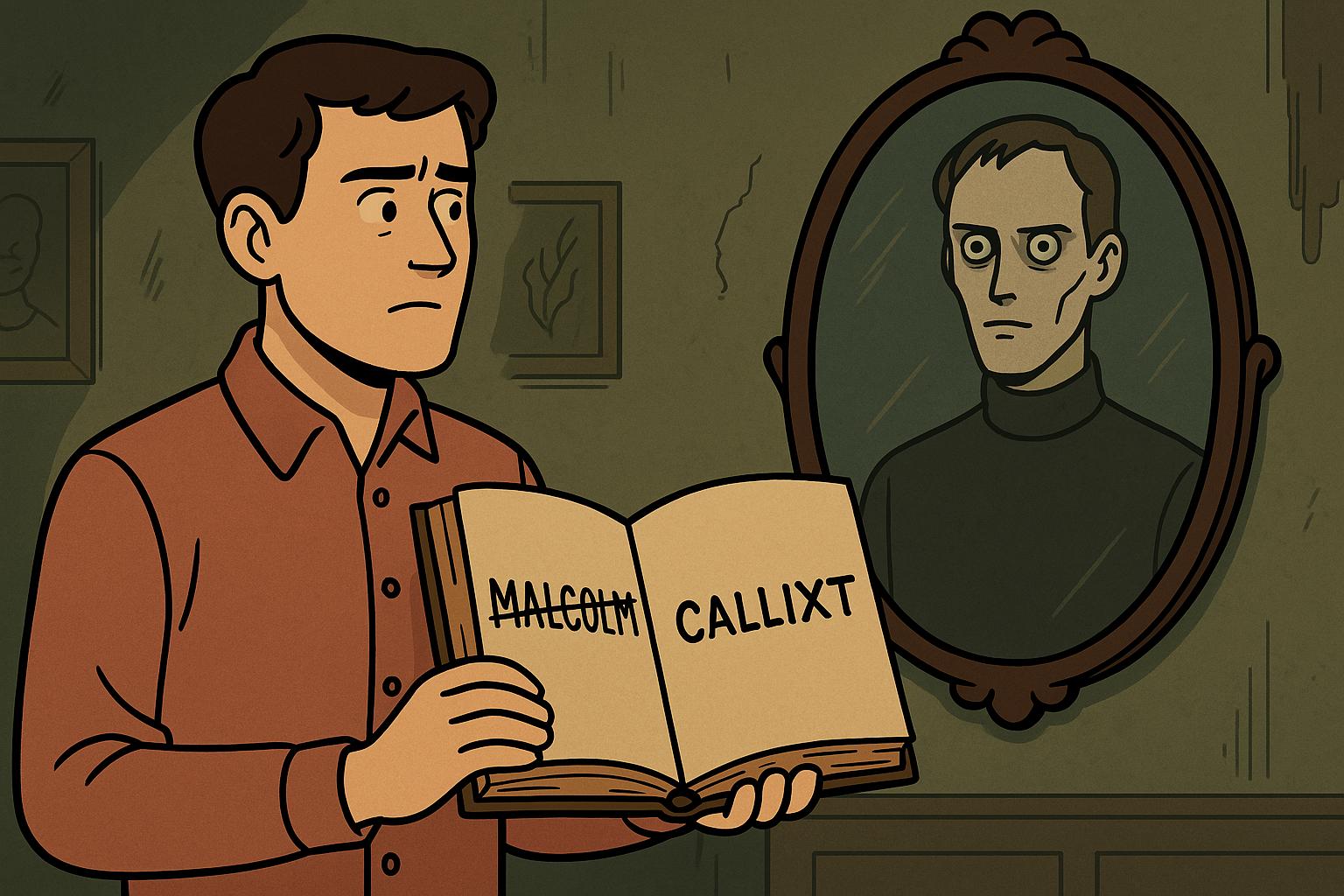
My mother named me after her brother who vanished in the woods behind our house thirty years ago. Malcolm. A name carved into the stone of family tragedy, thick with mourning and mystery. Every syllable clung to me like wet cloth. It wasn’t a name so much as a tether—a ghostly whisper that followed me down hallways, through dreams, through the choked silences of Thanksgiving dinners.
When I was a child, I asked my father once, “Why not give me my own name?”
He looked up from his plate. The ticking of the clock behind him was thunderous. “Your mother needed to believe he was still around. You’re the echo that keeps him close.”
An echo. That’s what I was. Never a voice of my own, just a rebounding cry down the long corridor of someone else’s loss.
By the time I turned twenty-six, the name had soaked into my bones. Job applications, bank accounts, prescriptions—all bore his name. I saw Malcolm in the mirror, but it never quite fit. My smile wasn’t his. My laugh didn’t match the brittle chuckle captured in the one surviving cassette tape from 1994. Still, I carried the burden.
Until Aunt Helen died.
Her will was simple: she left me her crumbling estate at the edge of Wolfpine, a town so isolated the GPS trembled in uncertainty. The house had belonged to the family for generations, nestled near the edge of those same woods where Malcolm—the first Malcolm—had stepped in and never come back out.
People said he went mad. Said the forest took something from him. Others claimed he simply walked away from the weight of the name.
It didn’t matter. I wasn’t afraid of the stories. I was exhausted by the name.
And the house, for all its decay, promised something else: a beginning.
The house smelled of old pages and mildew. Walls streaked with mold wept beneath faded portraits of family members long forgotten—sepia faces with hollow eyes. There was no warmth here. No welcome. But there was silence, a kind I hadn’t heard in years.
I spent the first night on the floor, wrapped in a wool blanket that smelled like cedar and dust. I dreamt of the forest—dreamt I was walking into it, barefoot, name trailing behind me like a scarf unraveling. Something followed. A whisper, familiar yet twisted.
“Malcolm…”
But the voice was wrong. Too deep. Too old.
I woke up gasping, heart pounding like a drum in my chest. The house groaned around me, settling into its own memory. I almost laughed. The house didn’t want me either.
By day, I explored the attic. That’s where I found the ledger.
Bound in leather the color of dried blood, it had no title. Just a single line inside the front cover:
“You may be reborn, but not unbaptized.”
The pages were filled with names. Dozens, maybe hundreds. Crossed out, rewritten, circled, sometimes torn. Notes scribbled in the margins—observations, corrections, incantations. It looked like a madman’s diary until I turned to the final page.
My name.
MALCOLM T. GRAY.
And beneath it, a space for a new one. Blank. Waiting.
I don’t remember choosing. Only the feeling—a rush of heat through my chest, a throb in the base of my skull, as if something had been waiting for permission. My fingers moved on their own. Pen scratched across the page.
CALLIXT.
Where had it come from? Not from me. It tasted like iron and fire. Alien and sacred.
When I looked up, the room was darker. Not with shadow, but with a kind of thickness. Like the air had curdled. The old mirror in the corner flickered. And for a breathless second, I saw not myself—but someone taller. Leaner. Pale. Eyes like cracked glass.
I blinked. It was gone.
But my reflection didn’t look quite right anymore. The face was mine, but it wore an expression I hadn’t chosen.
The changes began that night. Small things. My voice dropped half an octave. Words I didn’t know slithered off my tongue in sleep. I woke with dirt under my fingernails. My appetite vanished, replaced with a craving I couldn’t name.
More than anything, I felt lighter. Like I’d shed a second skin. For the first time, I breathed without the echo of another life rattling in my lungs.
But the forest… the forest knew.
Each evening, the wind moaned through the trees like a choir of the lost. And the whispers—soft at first, then insistent—spoke not to Malcolm, but to Callixt.
“We remember you. We remember your hunger.”
By the end of the week, I stopped answering my phone. Stopped checking emails. The world of Malcolm T. Gray unraveled behind me like a fading dream. I only left the house after dark, drawn toward the treeline with a hunger I still didn’t understand.
The night I stepped past the first line of trees, the forest went silent.
No crickets. No rustling. Only the faint, pulsing rhythm of something deeper. Older. Like a heartbeat under the soil.
I walked until I no longer recognized the path. The branches above knotted into a ceiling. Shapes moved between trees—not animals. Not quite. Things with edges that flickered and bled into the dark. Watching. Whispering.
And then I saw it.
A stone altar, half-swallowed by ivy and time. Around it, a ring of rotted wooden stakes, each carved with names. Some were mine. Or had been.
Malcolm was there, near the center. Freshly etched.
So was Callixt, newly carved, glowing faintly.
But there were others, too. Names I had never spoken but somehow knew—because I had been them. A dozen selves. Forgotten lives. Each name a costume worn and shed.
I reached out and touched the one just below Callixt.
Hekem.
The earth shuddered. My mouth filled with the taste of ash.
Something moved behind the altar. A figure—tall, bone-thin, with a face like cracked porcelain. Its mouth did not move, but I heard it in my skull.
“You wear the name well, but it is not yet yours. The old one still clings. Would you burn it away?”
I couldn’t speak. Only nod.
“Then walk the fire, Callixt. Walk it and be unmade.”
The ground split open.
And the forest swallowed me whole.
There was no falling.
Only descending—as if the earth inhaled me into itself. The walls of the chasm pulsed like flesh, warm and damp. The air thickened with the scent of singed hair and old blood. My body didn’t scream. It remembered.
And that terrified me most of all.
I was not Malcolm anymore. That was true. But I wasn’t Callixt yet either. Not fully. I was something in between—a ghost moving through the veil of its own rebirth.
The tunnel opened into a cavern, impossibly vast, lit by fire that clung to nothing. It danced in midair, flickering in spirals, casting shadows of creatures I couldn’t see—only feel. They watched, pressing in from the edges of my perception. Whispering not in fear, but in recognition.
This was the cradle of names.
At the center, a pit of flame pulsed like a wound in the earth. Shapes writhed within it—letters, symbols, names—burning, screaming, changing.
The porcelain-faced figure stepped into the light, now taller than before. Its skin was translucent, veins writhing like ink in water. It extended a hand, long fingers jointed too many times.
“To become, you must first unbecome. The name you wore still binds you. Malcolm must burn.”
I took its hand.
It led me to the edge of the pit. The heat didn’t scorch—it peeled. My skin prickled with awareness, my teeth ached. The fire licked at my soul.
“Speak it. Cast it in. Let it scream.”
I hesitated.
It was just a name. Just a sound. And yet…
I saw my mother’s face. The way her eyes brightened when she called me “Malcolm,” as if her brother had come back. I heard the recordings. The family dinners. The grief that had shaped me into something I never wanted to be.
Letting go meant betraying their memory. But holding on meant never being mine.
I opened my mouth.
“Malcolm T. Gray,” I said aloud.
And the fire rejoiced.
It roared upward, wrapped around the name as if it had always waited for this moment. I watched the letters bend, shriek, and disintegrate into something ancient and unnameable. I felt the weight leave me.
And then something inside me screamed.
A second voice. Ragged, terrified. It was him. Not just the name—the soul tied to it. The echo of the original Malcolm, still clinging after all these years. The one my mother had mourned. The one who had vanished into these woods. He had never left.
He had been buried in the name. In me.
The fire wanted him too.
“No—” I choked. “He’s not me. He’s—he’s separate.”
The porcelain figure tilted its head. “He wore the name first. You invited him in. Your blood is his conduit. Your breath, his tomb. Let him go. Or take him back.”
I fell to my knees.
The fire twisted, and in it, I saw him. My uncle. A boy of fifteen, face contorted in horror, hands reaching up from the inferno.
“Don’t let me burn again,” he sobbed. “I didn’t mean to go into the woods. I just wanted to be someone else. They promised me a name, and I—I couldn’t carry it.”
Oh god.
We had both been promised new names. And we had both paid in pieces of ourselves.
My hand reached for him—hesitated. He wasn’t just a ghost. He was the child who had tried to escape this very ritual. And failed. Now he was trapped inside the cycle, a broken echo screaming through generations.
“Is there another way?” I begged. “Can I free him?”
The figure was silent for a long moment. Then:
“Only one. Take his place. Let him walk out bearing your face, your bones. You will burn instead.”
I stared at the flames. My breath came in short gasps. I could feel the fire beginning to tug. It wanted me. Wanted my consent.
A choice.
I had never been given one before.
I turned to Malcolm. My uncle. The boy who bore the weight before I ever had a chance to say no.
He was crying now, shaking.
I stepped forward, one foot into the flame.
And I smiled.
“Take it, then,” I whispered. “Take the name. Take the face. Walk out free.”
And I let go.
The fire consumed me.
Every nerve erupted. But it wasn’t pain. It was purification. The memories that weren’t mine cracked like glass—birthday parties I never attended, voices that weren’t my own. The weight lifted, and I was nothing.
Then…
Something else.
I emerged from the fire not as Malcolm. Not even as Callixt. I was unwritten. A blank page still warm from the match.
And I remembered. All of them. The names I’d worn through lifetimes. Each one a thread in the tapestry of a self that had never been whole.
Now, I was free to choose.
The cavern faded.
I stood at the edge of the forest, dawn bleeding into the sky. The air tasted of newness.
Behind me, the boy—my uncle—walked into the world, wearing my face, my bones, but not my burden. I watched him go, a ripple in reality that none would question. He would return to a mother who believed her son had found himself.
And I?
I walked deeper into the woods.
Alone. Free. Unnamed.
And the trees whispered not in fear, but in reverence.
“We remember you. We remember your truth.”
